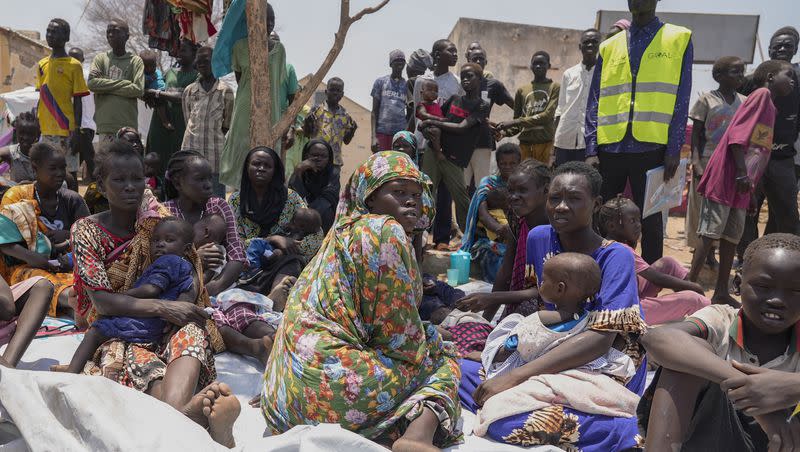Mass killings in Sudan, including at a camp for displaced persons

- Oops!Something went wrong.Please try again later.
The paramilitary group Rapid Support Forces in Sudan has captured Sudanese army headquarters and control of cities in the western region of Darfur, once again leaving a trail of bodies in its wake.
Civil war erupted on April 15 between the RSF, headed by Gen. Mohamed Hamdan Dagalo, universally known as Hemedti, and the military, led by Gen. Abdel Fattah al-Burhan. The two men had cooperated to overthrow a government led by a civilian prime minister, but then turned on each other, reports The Washington Post.
Mass killings
The most recent slaughter began Saturday morning, when RSF fighters attacked a regional capital, El Geneina, and Ardamata, a satellite settlement that has an army base and a large camp for displaced persons, where some 800 people are said to have been killed.
A witness reported that “many four-wheel-drive vehicles came and entered the camp, and the killing continued until the evening.” Where the roads were too narrow for four-wheel-drive vehicles, RSF militia continued their massacre on motorcycle.
Related
In June, the west Darfur capital of El Geneina and its surroundings became the site of a “gruesome massacre,” with more than 1,000 people killed in a single day as the RSF hunted down and killed non-Arab people. As of Wednesday, thousands more are fleeing the latest ethnic killings in Darfur.
Nabil Meccia, a nurse in Sudan, told Reuters that “he had seen RSF forces killing civilians as they sprayed gunfire during raids in the Ardamata camp, and lining men up and executing them.”
Turning homes into cemeteries
On Tuesday, Dominique Hyde, director of external relations at UNHCR, said “the war that erupted without warning turned previously peaceful Sudanese homes into cemeteries.” She detailed a visit to the region last week, saying the situation is one of the worst she’s ever seen in 30 years in the field.
For example, a transit center in Renk, South Sudan, that was built for 3,000 is now holding 20,000 people in conditions ripe for outbreaks of diseases, such as cholera. There have been “shocking accounts of widespread rape and sexual violence,” weapons of war being used to terrorize people, as well as brutal mass killings.
“We have received reports of assassinations, massacres of families and civilians. We have heard about detentions and forced disappearances … of large numbers of people, including vulnerable internally displaced people who had been sheltering around the army base in Ardamata. The RSF, as the de facto authority that now controls the region, are responsible for the safety of civilians,” said the United Nations deputy humanitarian coordinator for Sudan, Toby Harward.
On X, Harward posted that he had seen “sickening reports and images,” including those of assassinations and massacres of civilians and called on “those with authority” to uphold international law.
Sickening reports & images coming from Ardamata, W #Darfur, inc of assassinations, grave violations & massacres of civilians, following RSF takeover of area. Those with authority must uphold international humanitarian law, protect civilians, ensure rule of law, & provide…
— Toby Harward | طوبي هارورد 🇺🇳 (@tobyharward) November 7, 2023
Doctors Without Borders says that most of the 7,000 people who have crossed into Chad in the past three days are women and children who are fleeing with nothing, reports the BBC. UNHCR reports that the “overwhelming majority” of the 1.2 million refugees who have left Sudan are women and children. For those going to the Central African Republic, the number is 90%.
The war in Sudan has caused a major humanitarian crisis and the displacement of more than 7 million people, according to the International Organization for Migration. A measles outbreak killed 1,200 children in a displaced persons camp and more than 1,000 cases of cholera have been reported in Darfur.
Three weeks ago, the death toll from fighting was estimated at 9,000 people. Today, the toll is higher and, in spite of pleas for a cease-fire from the international community, there does not appear to be an end in sight.
Holly Richardson is the editor of Utah Policy.

